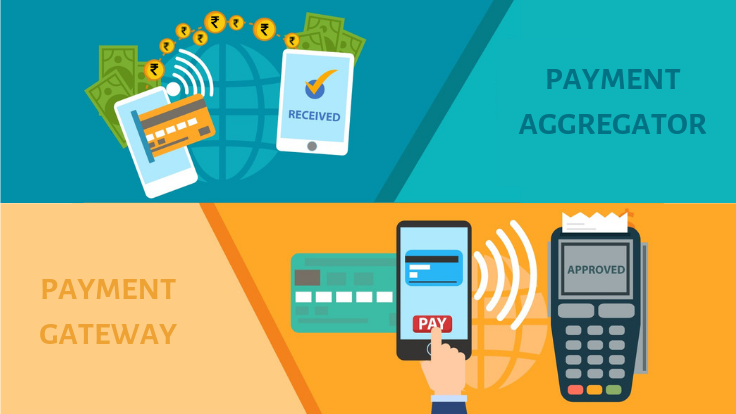Payment Aggregator vs Payment Gateway
The Internet has revolutionized various aspects of our lives. One of the most significant advancements it has brought is the ease of online payments. In the past, transferring a large sum of money was a complicated and time-consuming process. However, with the advent of online payment systems, transferring even substantial amounts anywhere in the world has become effortless, requiring only a few touches and clicks. Additionally, currency conversion, which once posed challenges, is now handled instantaneously, making global transactions smoother than ever.
Understanding Online Transactions
In the world of online transactions, two commonly used terms—Payment aggregator vs payment gateway—often create confusion among users. These two elements form the backbone of digital payment systems, yet they serve distinct purposes. The debate between payment aggregators vs. payment gateways is prevalent, but in reality, both play crucial roles in ensuring seamless online transactions.
What is a Payment Gateway?
A payment gateway is a technology that facilitates transactions between merchants and customers. It acts as a bridge that securely processes payments made via credit cards, debit cards, net banking, and various digital wallets. The primary function of a payment gateway is to authorize transactions and ensure funds are transferred from the customer’s account to the merchant’s account securely.
How Payment Gateways Work
- Customer Initiates Payment: The customer selects a product or service online and proceeds to checkout.
- Data Encryption: The payment gateway encrypts the transaction details and forwards them to the payment processor.
- Authorization Request: The payment processor contacts the issuing bank or card network for authorization.
- Transaction Approval or Decline: The issuing bank validates the transaction and responds with approval or decline.
- Funds Transfer: If approved, the funds are transferred from the customer’s account to the merchant’s account.
- Transaction Confirmation: The merchant and customer receive confirmation of the transaction.
What is a Payment Aggregator?
A payment aggregator, also known as a merchant aggregator, is a service provider that allows businesses to accept payments without the need to set up their own merchant account. Instead of requiring individual merchant accounts, payment aggregators consolidate transactions from multiple merchants into a single account and then disburse the funds accordingly.
How Payment Aggregators Work
- Merchant Registers with Aggregator: Businesses sign up with a payment aggregator instead of creating a dedicated merchant account.
- Customers Make Payments: Customers make payments using various methods, such as credit/debit cards, digital wallets, or bank transfers.
- Aggregator Processes Transactions: The aggregator processes payments on behalf of the merchant and holds the funds temporarily.
- Funds Disbursement: After a specified period, the aggregator transfers the collected funds to the merchant’s account.
Key Differences Between Payment Gateways and Payment Aggregators
1. Merchant Account Requirement
- Payment Gateway: Requires businesses to set up a merchant account to process payments.
- Payment Aggregator: Does not require individual merchant accounts; businesses can accept payments through the aggregator’s account.
2. Ease of Setup
- Payment Gateway: Requires more time and paperwork to establish, as it involves setting up a separate merchant account.
- Payment Aggregator: Offers a quick and hassle-free setup, making it ideal for startups and small businesses.
3. Transaction Processing
- Payment Gateway: Acts as a middleman that securely processes transactions and transfers funds directly to the merchant’s account.
- Payment Aggregator: Collects payments on behalf of multiple merchants and disburses them at scheduled intervals.
4. Cost and Fees
- Payment Gateway: Involves setup fees, transaction fees, and maintenance charges.
- Payment Aggregator: Generally charges a small transaction fee but has fewer upfront costs, making it a cost-effective option for small businesses.
5. Security Measures
- Payment Gateway: Provides higher security standards due to encryption protocols and fraud detection mechanisms.
- Payment Aggregator: Also employs security measures but may not have the same level of encryption as dedicated payment gateways.
Choosing the Right Option for Your Business
When to Choose a Payment Gateway
- If your business processes a high volume of transactions daily.
- If you need a customized payment solution with greater control over transactions.
- If you require enhanced security features for sensitive financial data.
- If you operate an established business that can afford setup and maintenance costs.
When to Choose a Payment Aggregator
- If you are a startup or small business looking for an easy and quick way to start accepting payments.
- If you want to avoid the hassle of setting up a merchant account.
- If you process a moderate volume of transactions and prefer a cost-effective solution.
- If you want a seamless integration with multiple payment methods.
The Role of Zupain in Online Payments
Zupain is an emerging payment solution provider that offers reliable payment aggregation services. It simplifies the payment process for merchants by providing a hassle-free platform to accept payments. With a focus on security and efficiency, Zupain is an excellent choice for businesses looking to integrate a payment aggregator into their operations.
Conclusion
Both payment gateways and payment aggregators are essential components of the online payment ecosystem. Understanding their differences empowers businesses to make informed decisions and optimize their payment processing strategies. Selecting the right payment option is crucial for smooth and efficient financial operations.
